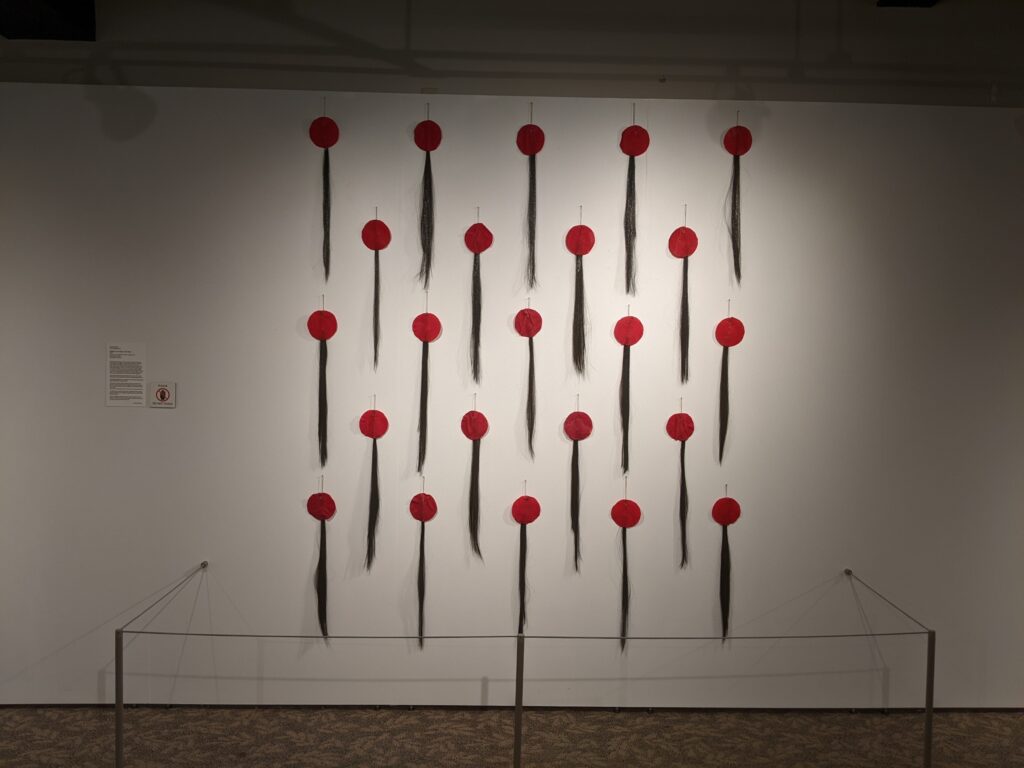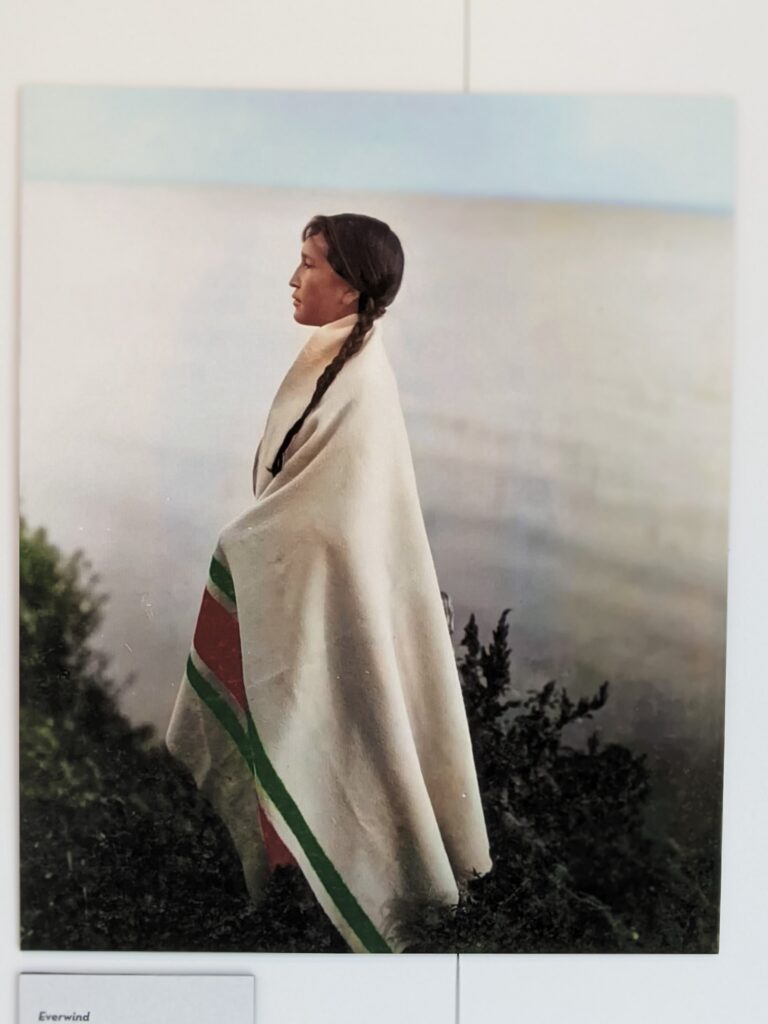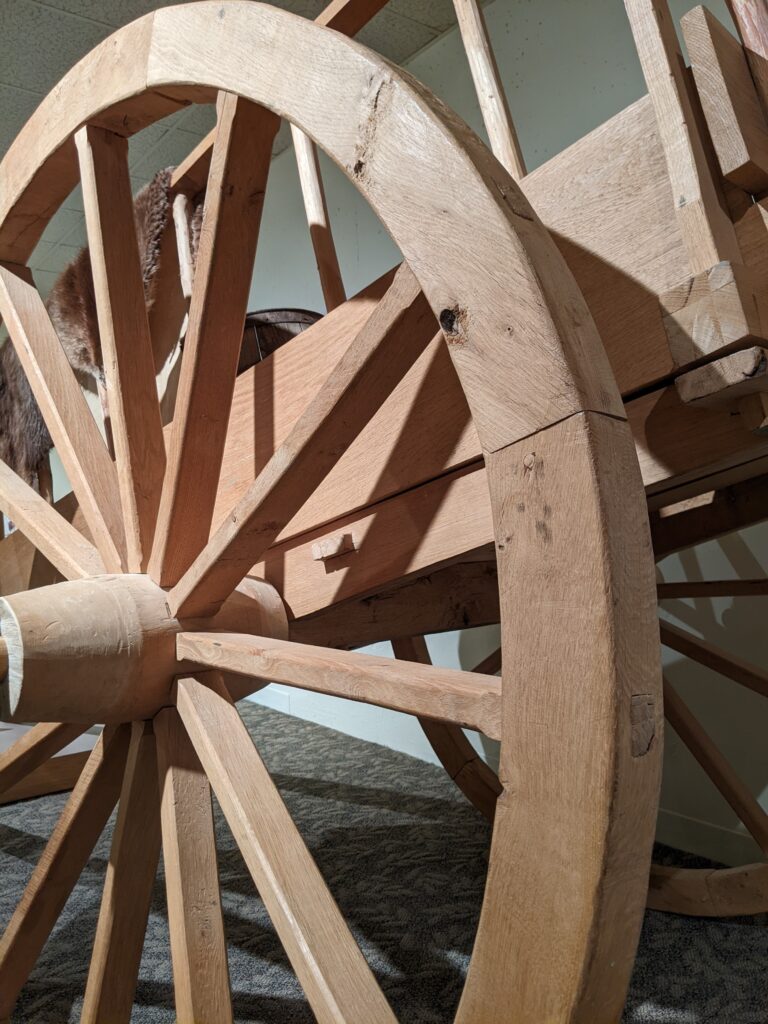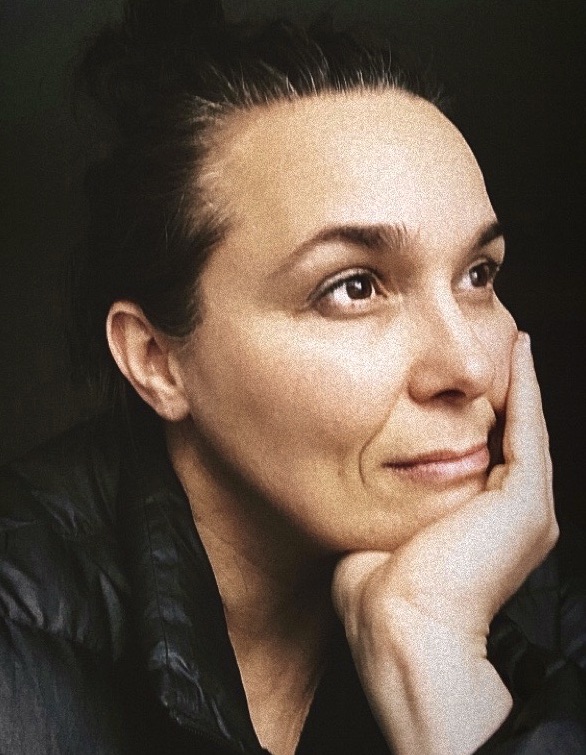
“Redskin: Our Scalps, Your Honor,” by Muscogee-Kiowa artist Micah Wesley, uses red wax and synthetic hair to represent the co-opting of Native American stereotypes in professional football and other sports. Photo by Brandi Malarkey.
“Lefse.”
“Lutefisk.”
“Uffda.”
“That big Viking ship?”
Ask people — local and otherwise — to describe the Fargo-Moorhead and West Fargo region and you’ll likely get a lot of Scandinavian-esque responses.
Our region most certainly boasts many Nordic cultural traditions, as the Historic and Cultural Society of Clay County has celebrated so well throughout the years. But it would be remiss to dismiss the inclusion of additional immigrant stories, which is something HCSCC is focusing on in four current exhibits that broaden cultural representation in our region.
“We do celebrate Nordic cultures, and the ship is a very big part of that,” HCSCC Communications Manager Gabby Clavo said. “But we are so many other things, as well.”
There’s a lot going on at the museum, to be sure. Aside from four different cultural exhibitions, the Hjemkomst Center is celebrating its 40th anniversary and a much anticipated facelift to the ship area. Here’s more about the exhibits.

“Dibaajimowin: History in Color” by Kade Ferris features colorized historical photos of members of the Turtle Mountain Band of Chippewa Indians of North Dakota. Photo by Brandi Malarkey.

A wooden wagon is one of several artifacts on display as part of “Ihdago Manipi: Clay County at 150,” representing the lesser-known stories of Native Americans in Clay County.
‘Stories of Local Black History’
An original exhibit created by the HCSCC, “Stories of Local Black History,” focuses on African American citizens of Fargo-Moorhead from the late 1800s to the present.
“We had all this history and knowledge of black farmers and black barbers, and so much more, and we had to ask ourselves, as public historians,‘How do we put this all together? How can we make it easy for the public to digest?’ ” Clavo said.
‘Stories of Local Black History’ will be available to view until October 9, 2022.
‘Dibaajimowin: History in Color’
Kade Ferris, a member of the Turtle Mountain Band of Chippewa Indians and Red River Métis, highlights digitally colorized images of Indigenous Americans from the turn of the 20th century.
“The colorization really shows off the importance of the dress and regalia the Native American people would wear,” says Clavo. “The black and white images don’t give the same visual impact to the viewer.” “Dibaajimowin: History in Color” will be available to view until Jan. 6, 2023.
‘Ihdago Manipi: Clay County at 150’
“Ihdago Manipi: Clay County at 150” explores Clay County’s first century and a half, starting with the Dakota, Ojibwe and Métis communities, and following the arrival of the railroads and immigrants to the area.
“We’ve uncovered a lot of stories that a lot of people haven’t seen,” HCSCC Executive Director Maureen Kelly said. “Half the exhibit is the traditional immigrant, sodbuster, Homestead Act story. The other half is talking about indigenous perspectives of these fascinating cultures that lived here before and at the same time.”
“Savages and Princesses: The Persistence of Native American Stereotypes”
Organized by ExhibitsUSA, “Savages and Princesses: The Persistence of Native American Stereotypes,” features the work of 12 contemporary Native American visual artists and explores their identities as Native Americans.
The work is intended to challenge false stereotypes about Native peoples that have persisted over time and is on display through Oct. 22.
HCSCC will be offering free admission on Indigenous Peoples’ Day, Monday October 10, 2022.

About the author
TAP partner and community content contributor Brandi Malarkey is a multi-disciplinary artist, writer, administrator, and occasional hot mess. She is a collector of dead bugs and good books, and a believer that ordinary miracles and small kindnesses have the power to change the world. Learn more about Brandi on her website: www.itsallmalarkey.com.


